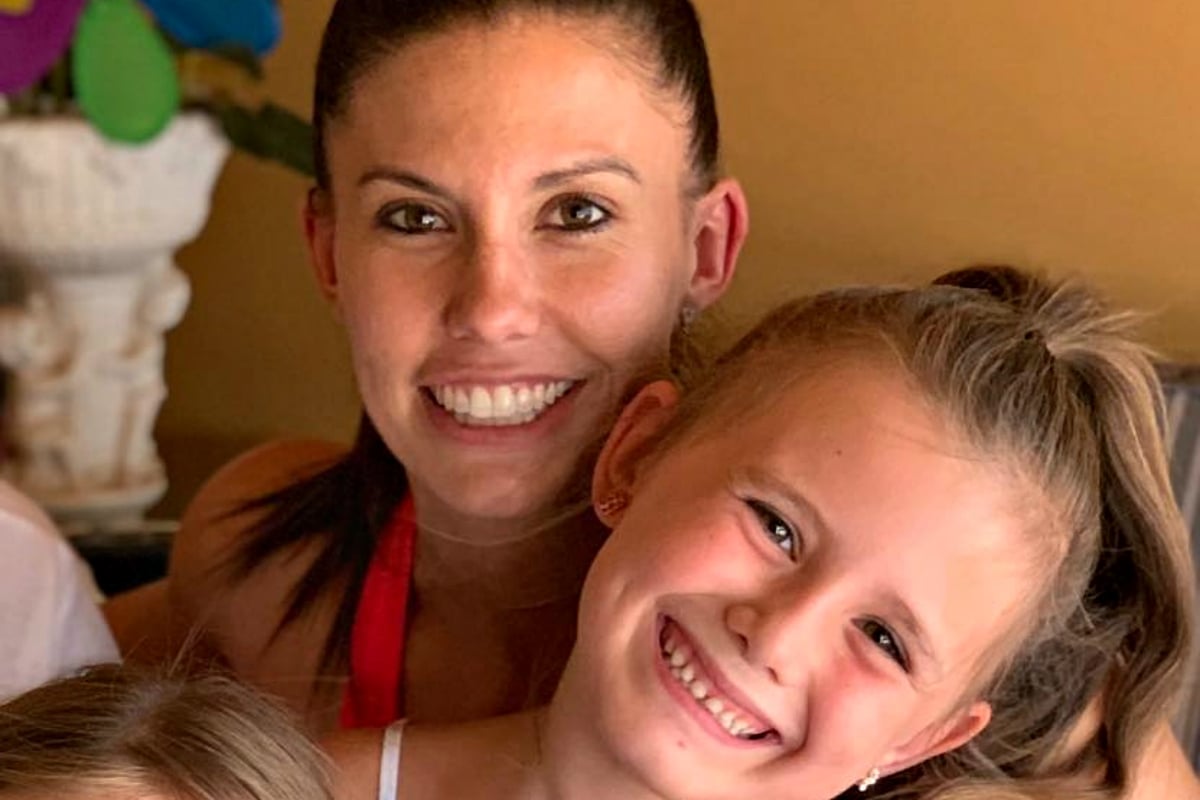
If you or someone you know is impacted by domestic violence, call 1800RESPECT on 1800 737 732. In an emergency, call 000.
This post deals with domestic violence and might be triggering for some readers.
Despite increased awareness and understanding of domestic violence, the same questions are asked of victims, again and again.
“Why did she put herself in a dangerous situation?” “Why didn’t she leave?”
Hannah Clarke had left.
According to relatives, the Brisbane woman had scooped up her three children and moved from their family home in Carindale in December. It seems she had the resources and the support system that so many lack. Even then, it wasn’t enough.
The 31-year-old and her children — Lainah, 6, Aaliyah, 4 and Trey, 3 — died this week from injuries sustained in a car fire allegedly lit by Hannah’s estranged husband.
Watch: The hidden numbers of domestic violence… Post continues after video.
On Wednesday morning, emergency services were called to a quiet street in the suburb of Camp Hill to reports of a car engulfed in flames and people trapped inside. What should have been an ordinary school run appears to have become the sickening scene of family violence. The children died in that car, Hannah died overnight in hospital, and the man who claimed to love them died on the footpath with self-inflicted wounds.


Top Comments
I would like to understand why victims of persistently violent and harassing ex-partners are not issued with ‘buzzers’ (similar to elderly people who have these to alert following falls etc. )? Where such high risk of unacceptable violence to the most vulnerable of people exists, these buzzers could give an immediate response by police when required. I know choosing who to be providing these buzzers to could be a huge exercise in itself - but the police must be able to respond immediately to situations such as Hannah Baxter and her children faced, or are we leaving defenceless children of all people, to face this violence on their own?
I've experienced the appaling reactions from police and also the slow work of the domestic violence court - my husbands ex wife is the abuser. She has done it for years to him, he left, and last year she ramped up with threats and psychological abuse. We seeked legal help and got a DVO. There has been multiple breaches and each time my husband goes to the police for help and support he is faced with being treated like a criminal himself before they finally support him after much apologies. He at times thought whats the point in reporting no one will help me make it stop.
Domestic Violence isn't gender specific - Victims are both male and female
The court system for these crimes is appalling. 6 months and still no criminal trial - no consequence for the horrible behaviour of the abuser. Harsher, Faster and stricter consequences are required.